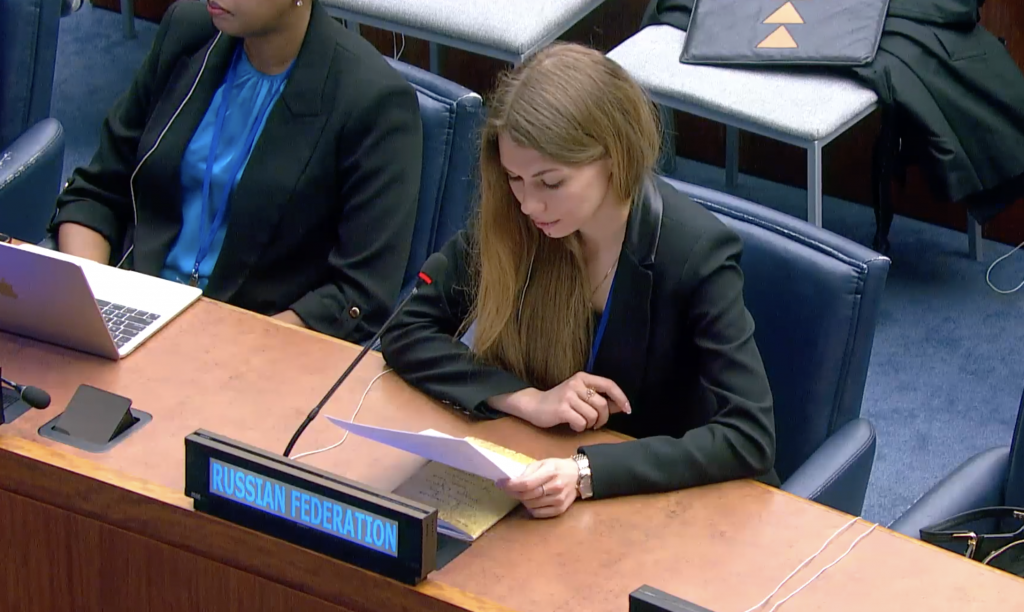Statement by Representative of the Russian Federation Ms.Irina Tyazhlova at the Seventh session of the UN Open-Ended Working Group on security of and in the use of ICTs 2021-2025 under agenda item “Confidence-building Measures”
Mr. Chair,
As for the development of confidence-building measures, in 2023, we took an important step forward by adopting the elements of a global intergovernmental Points of Contact (PoCs) Directory for exchange of information on computer attacks/incidents. In doing so, the OEWG has once again demonstrated its efficiency, as well as the viability of consensus decision-making mechanism. It is crucial to ensure that the PoCs Directory does not remain on paper, but is used by States in good faith to develop depoliticizied cooperation in order to reduce tensions and prevent misperceptions of incidents in the use ICTs. This, in turn, will significantly reduce the risks of conflicts in information space.
We welcome the efforts by the Chair of the OEWG, Mr. Burhan Gafoor, to effectively launch the PoCs Directory as soon as possible. For our part, we have already submitted information on the Russian PoCs at the technical and diplomatic levels to the UN Office for Disarmament Affairs. In our case the diplomatic PoC is the Ministry of Foreign Affairs, while the technical PoC is the National Computer Incident Coordination Center, which is our national Computer Emergency Response Team/Computer Security Incident Response Team (CERT/CSIRT).
We urge all the UN Member States to promptly identify PoCs at the national level and submit their data to the Directory. That will enable us, starting from May, – in line with the Chair’s intention – to move on to practical activities of the PoCs Directory, including regular in-person and virtual meetings, communication checks in the form of “ping” tests.
In our view, such efforts will be more efficient if, at this point, we also continue further improving the Directory, primarily, through the development of standardized communication templates. Such templates could include the type of information requested, in particular, technical data and the nature of the request. As for relevant capacity-building measures, we believe that collating a specific list of needs of each State for participating in the PoCs Directory is a step in the right direction. It is important to pay special attention to the needs of developing States, many of which have no experience of participating in other directories of narrower membership.
In our further work on the initial list of confidence-building measures (CBMs) we shouldn’t lose sight of their main purpose – to raise the overall level of trust between States, to reduce the risks of misperception and escalation, as well as to prevent tensions from growing into direct confrontation. In this regard, it would be useful, as a priority, to discuss and develop consultation mechanisms, including through competent agencies, on activities in information space that may raise concerns of States. The PoCs Directory that we are launching could be the basis for such mechanisms as it enables direct communication between States’ interested authorities.
The fundamental point is that any current and future CBM should not be used as a tool for interfering in the internal affairs of countries or for making biased political assessments of States’ actions and intentions in information sphere, followed by different punishments, such as sanctions and other response measures.
Thank you for your attention.
